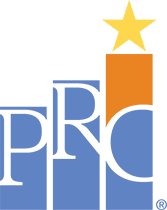Our guest on this week’s episode of our Healthcare Experience Foundation partners’ Healthcare Experience Matters podcast is Paul Glisson, D.O., MBA, FACEP. Dr. Glisson currently serves as chief medical officer with Infirmary Health in Mobile, Ala.
Today’s discussion centers around Dr. Glisson’s thoughts on the importance of emotional intelligence and its value to the worldwide community of healthcare workers and the patient experience.
With a medical degree from Kansas City University of Medicine and Biosciences, and a Master of Business Administration (MBA) in health care administration from Auburn University, Dr. Glisson is also a Fellow of American College of Emergency Physicians. He holds licenses and certifications in Florida, Alabama, and Georgia.
Dr. Glisson also shares his thoughts on how his background in the United States Navy has shaped his leadership skills and further developed his emotional intelligence.
“The Navy really teaches you about accountability,” Dr. Glisson said.
As we learned on today’s podcast, leadership training in the U.S. Navy is based on a foundation of emotional intelligence.
“Emotional intelligence gets to the people-connection and it’s about being self-aware of your environment and the people you are dealing with,” he said. “It’s about being able to listen and make decisions based on your situation… that’s what it boils down to for me.”
As Dr. Glisson reminds us in the opening minutes of today’s podcast, so much of what drives growth in our society is failing. And failure is something that Dr. Glisson has both experienced and gained emotional intelligence from.
In fact, failing is what originally sparked Dr. Glisson’s interest in developing emotional intelligence in the first place.
“I’ve had some epic failures when I should have used emotional intelligence,” he said.
Dr. Glisson cites failing to read a situation properly as an example.
Emotional intelligence is also extremely critical when it comes to exemplary patient care.
“Even with the best plans, the wheels will come off if you don’t make a connection with your patients,” he said.
Making connections with patients is all about practicing some of the key elements of emotional intelligence and this includes being a dedicated listener. It all starts with listening, as Dr. Glisson points out for us early and often in this interview.
Listen to the podcast episode below:


